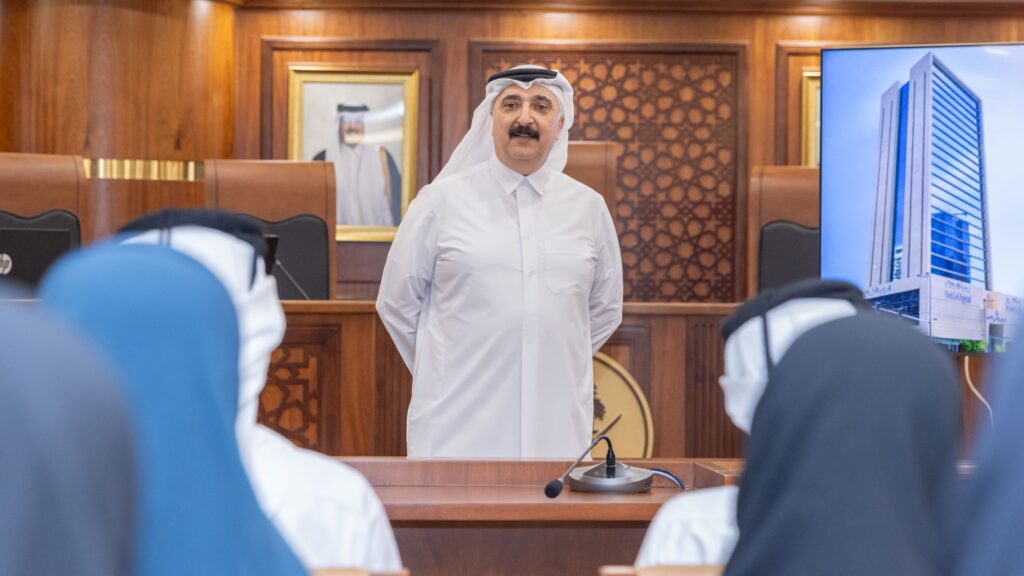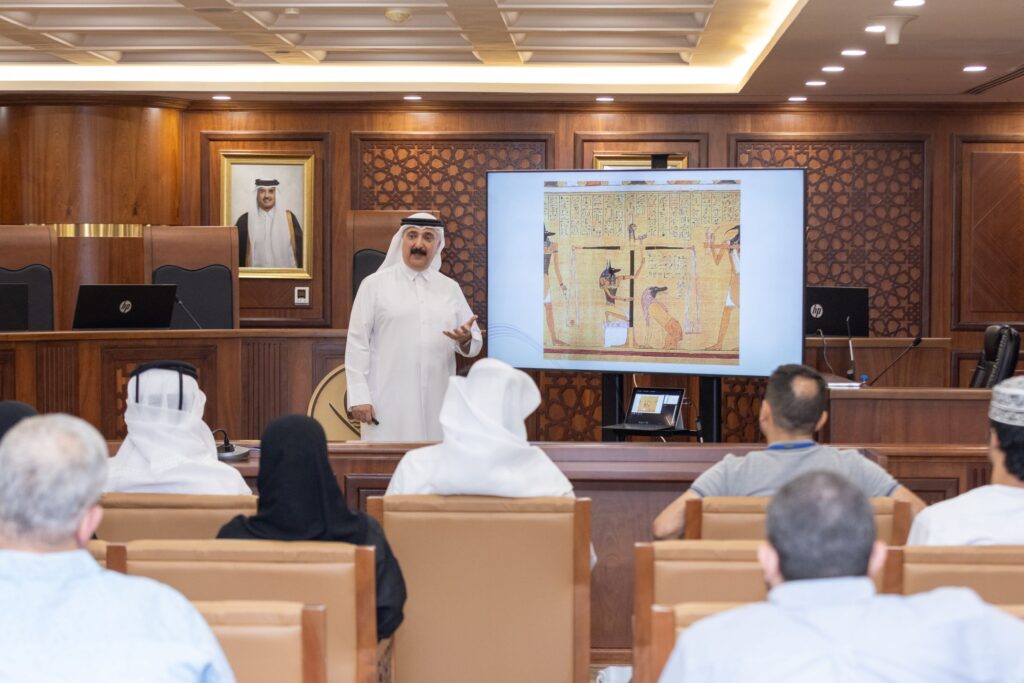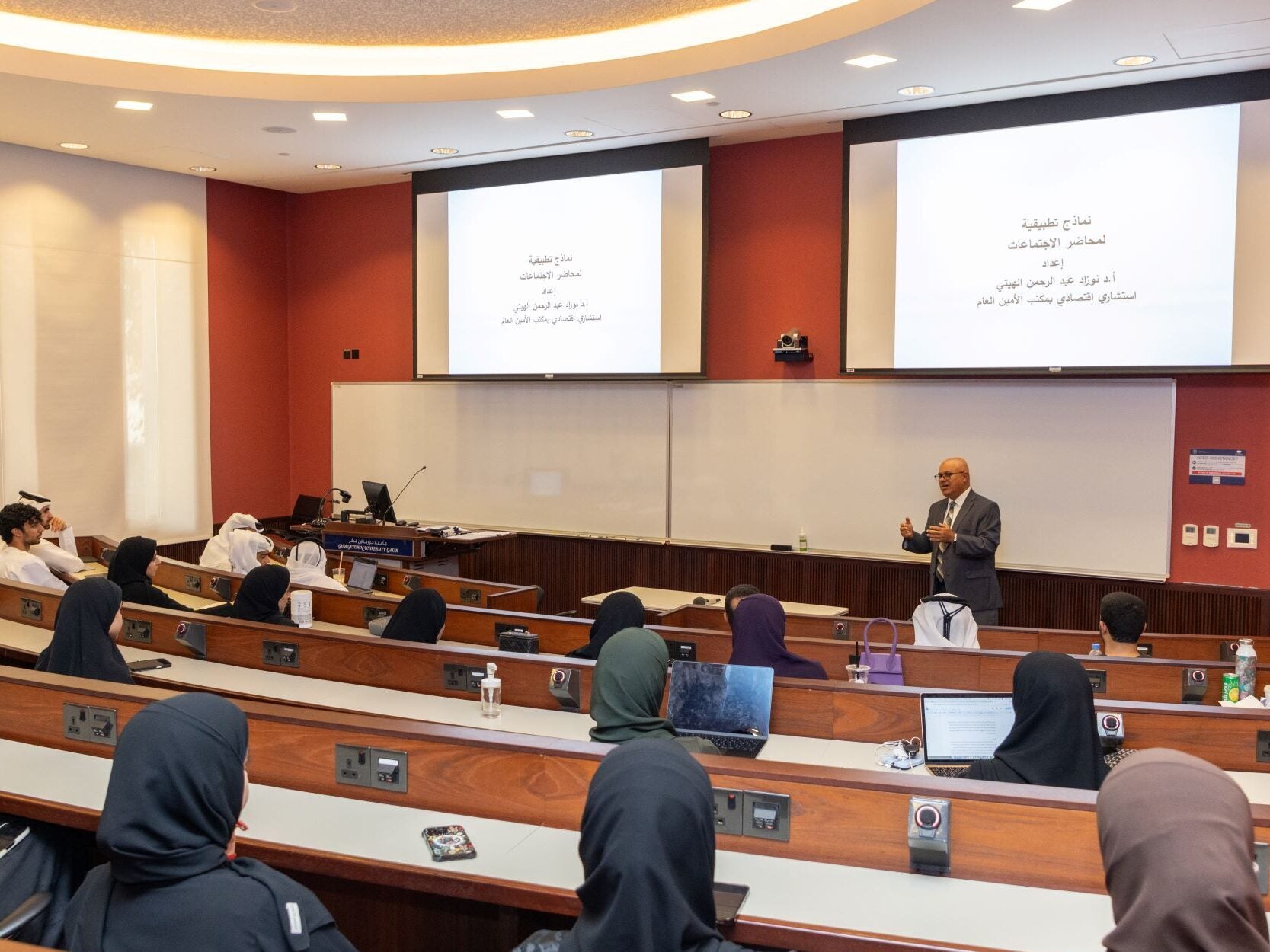How GU-Q Brings Arabic to Life

Georgetown University in Qatar (GU-Q) recently brought Arabic to life through GU-Q Assistant Professor Seerwan Hariry’s Summer Advanced Business Arabic course, which immersed students in real-world workshops and site visits to enhance their professional Arabic skills.
The program kicked off at the General Authority of Customs in Al Wakra, where students observed customs operations and inter-ministerial communication firsthand, led by Ahmad Al Jassim, Director of the Training Center and International Events. They explored the Tawasol service for official communications and watched the preparation of formal documents.

The students then visited the Supreme Judicial Council to learn about the features of Arabic legal language. Dr. Omar Ghanim, Director of International Judicial Cooperation, introduced them to vocabulary crucial for courtroom proceedings.
“I learned many useful business skills,” said Mohammed Al Hitmi (GU-Q’25), reflecting on his experience. “As I am in my senior year I found this course very helpful in preparing for the job market. I also found Dr. Hariry very engaging and responsive to feedback.”
Back on campus, Dr. Hariry and Texas A&M at Qatar (TAMU-Q) professor Dr. Naqaa Abbas, recipients of a TAMU-Q Multiversity Grant, collaborated to enhance GU-Q and TAMU-Q students’ technical Arabic writing skills. They organized a professional CV crafting workshop taught by General Authority for Customs officials. This was followed by a diplomatic communication and analytical reporting session led by Dr. Nawzad Abdulraman Al Hiti from the Diplomatic Institute. As part of the grant, Dr. Hariry also led four writing workshops at TAMU-Q to improve students’ job prospects in both Arabic and English.

In Advanced Business Arabic, students delve into business, diplomatic, and technical writing, supported by industry and government partners. Dr. Hariry expressed gratitude to these partners, emphasizing, “Thanks to these engagements, our students gained real-world insights that textbooks alone could not provide, equipping them with essential skills for their professional futures.”